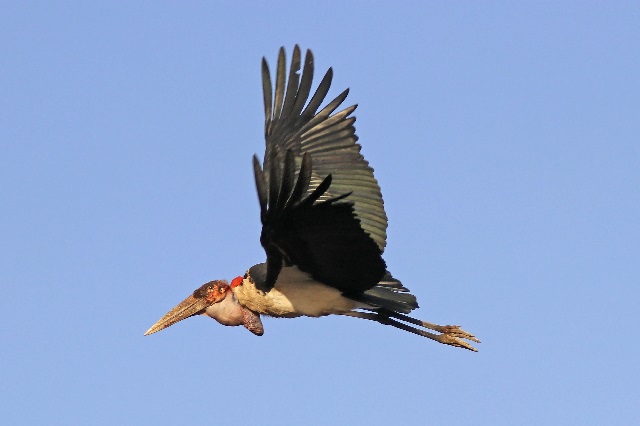
Kampala, Uganda | THE INDEPENDENT | Conservationists have said that the nests and nestlings of marabou storks and cattle egrets at Parliament should not be removed.
The marabou stork, one of the biggest and most fascinating birds found in Africa feasts on carcasses and scraps of dead animals.
Last month, the Minister for Mineral development Sarah Opendi called on the Parliamentary Commission to get rid of the birds around the precincts of Parliament saying they pause a health threat and their stench was unbearable.
Last week, Uganda Wildlife Authority department in charge of problem wildlife said that they plan to remove the nests from the trees in Parliament and relocate the nestlings as a means to irritate the birds from continuing to settle in Parliament.
Conservationists have now asked Kampala Capital City Authority-KCCA and Members of Parliament to first address the problem of garbage and pollution instead of the removing the storks.
Martin Asiimwe, a biodiversity expert with World Wide Fund for Nature (WWF) said that the slaughter houses, poor garbage disposal are the main reasons why the marabou storks surround offices and places around Kampala.
He said the best proposal is to have slaughter houses in the centre of Kampala moved as the scavengers prefer to stay where the food is.
Asiimwe also says that another method is to pollard trees, which is a pruning system in which the upper branches of a tree is removed to encourage new growth. He says this however needs to be done earlier before the birds settle.
Jonathan Onango, a program assistant with Nature Uganda says that the population of the marabou storks has increased due to the availability of garbage.
Onango says originally the birds like marabou storks settled near landing sites where they would get food, however the cutting down of trees and availability of food is a factor that will congregate them.
There are an estimated 10,000 marabou storks in Kampala alone and are instrumental in reducing on the accumulation of offensive garbage that has remained a challenge for the city authorities to solve.
According to statistics from KCCA, close to 28,000 tons of waste is collected monthly. This is only 40% of the waste generated.
*****
URN
 The Independent Uganda: You get the Truth we Pay the Price
The Independent Uganda: You get the Truth we Pay the Price



